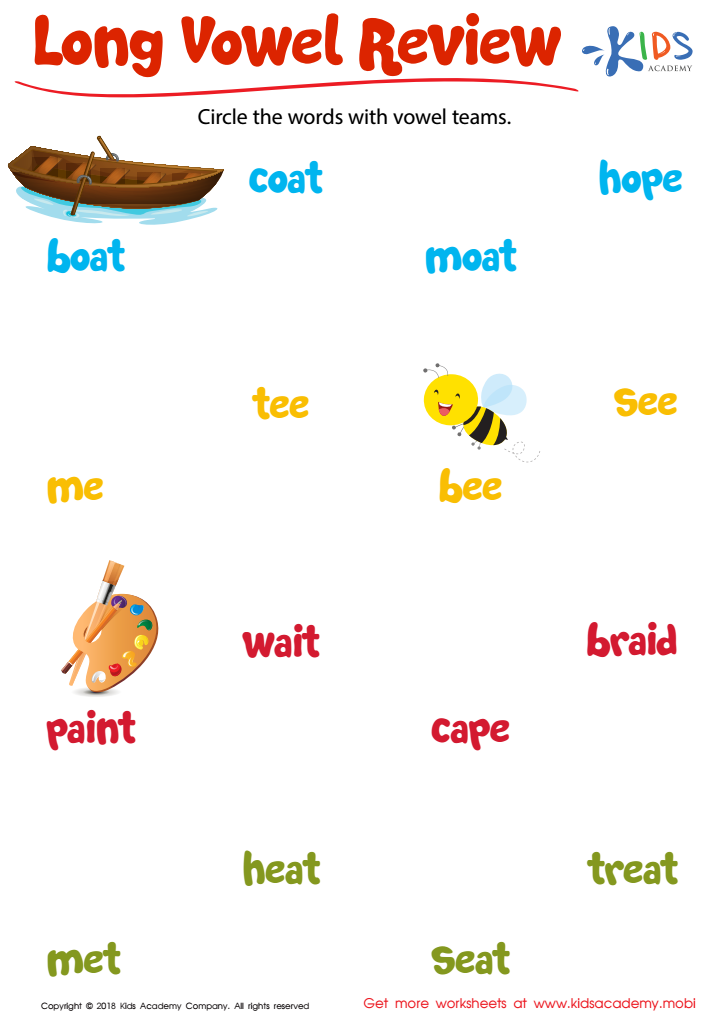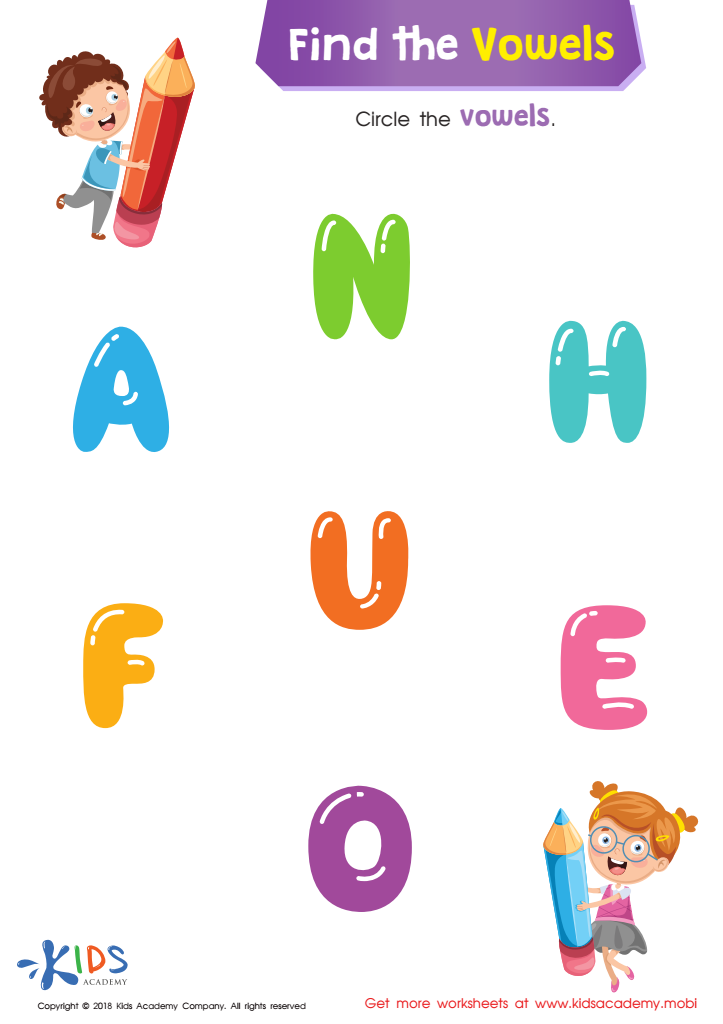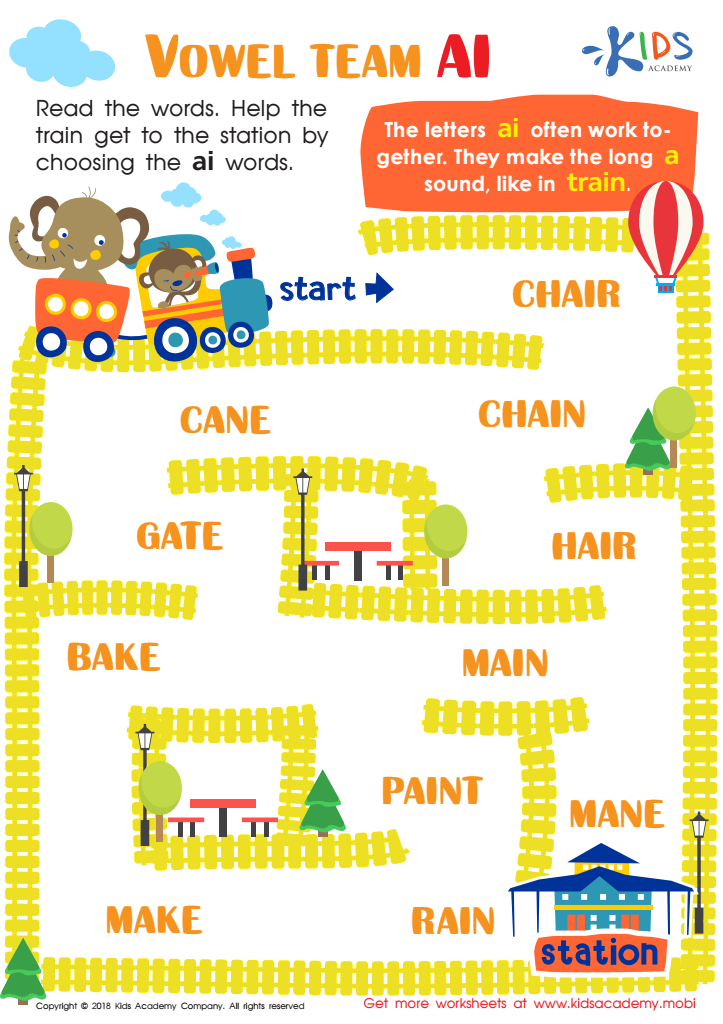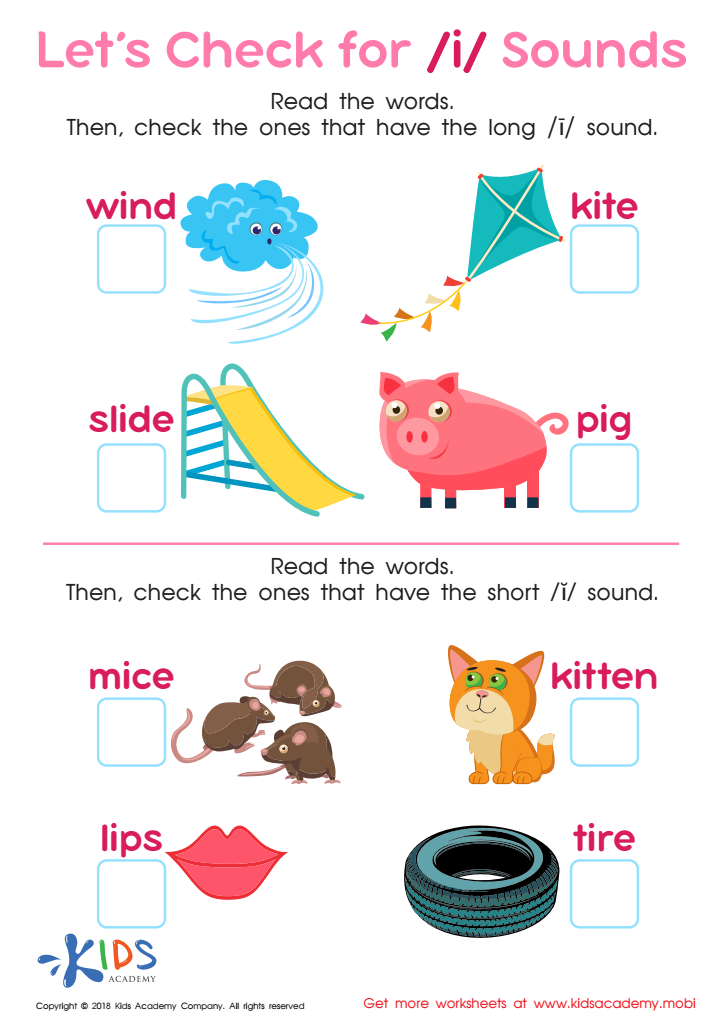Reading skills improvement Vowels Worksheets for Ages 5-7
4 filtered results
-
From - To
Enhance your child's reading skills with our specially designed Vowels Worksheets for ages 5-7. These engaging and educational worksheets from Kids Academy focus on improving vowel recognition, pronunciation, and usage in various words and sentences. Tailored for young learners, this collection encourages interactive learning through vibrant illustrations, fun activities, and practical exercises. Each worksheet helps children build a strong foundation in reading by focusing on the core components of vowel sounds and their roles in word formation. Perfect for home or classroom use, these worksheets are an excellent resource to support your child's early literacy journey.


Long Vowel Review Worksheet


Find the Vowels Reading Worksheet


Vowel team ai Worksheet


Let's Check for «i» Sounds Worksheet
Reading skills, particularly vowel recognition, form the cornerstone of literacy for young children aged 5-7. This is a critical period when foundational language abilities are rapidly developing. Vowels serve as essential building blocks of words and are integral to proper pronunciation, spelling, and comprehension.
First, understanding vowels helps children decode new words. Early readers frequently encounter simple vocabulary where vowels play a significant role in phonetic construction. Mastery of vowels enables them to sound out words correctly and build fluency, which is key for confident and efficient reading.
Second, strong reading skills foster a love for learning and contribute to overall academic success. When children can read well, they are more likely to enjoy storybooks, participation in group reading activities, and engage more deeply with educational content across subjects.
Third, literacy development has far-reaching social and emotional benefits. As kids improve their reading skills, they gain higher self-esteem and feel more equipped to express themselves, enhancing their communication capabilities.
In summary, focusing on vowel skills for ages 5-7 sets the stage for a lifetime of reading success, building a robust linguistic foundation, promoting academic achievement, and supporting emotional and social development. Parents and educators play a pivotal role in encouraging and nurturing these talents during these formative years.
 Assign to My Students
Assign to My Students














